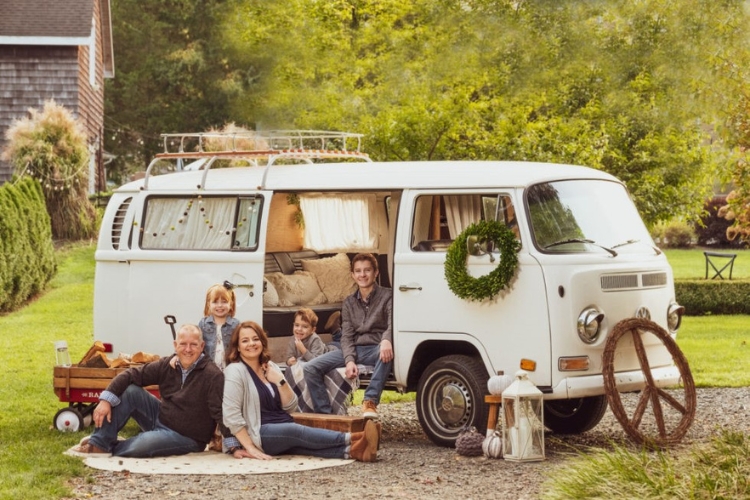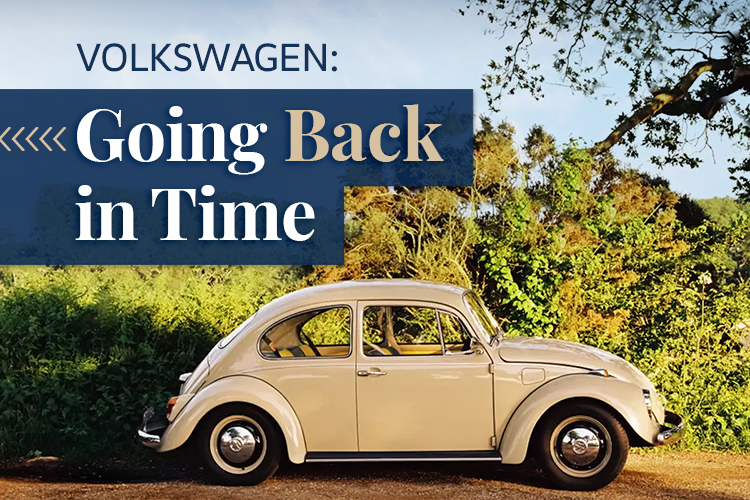
Volkswagen is one of the world’s most recognizable car brands. A favorite amongst our military customers, Volkswagen has developed legendary vehicles such as the Beetle, the Golf, the GTI, and the Passat.
With such a storied history of vehicles coming from Volkswagen, it’s hard not to get nostalgic about the past. Let’s look at the storied history of Volkswagen and what makes them a true favorite among consumers, particularly our service members.
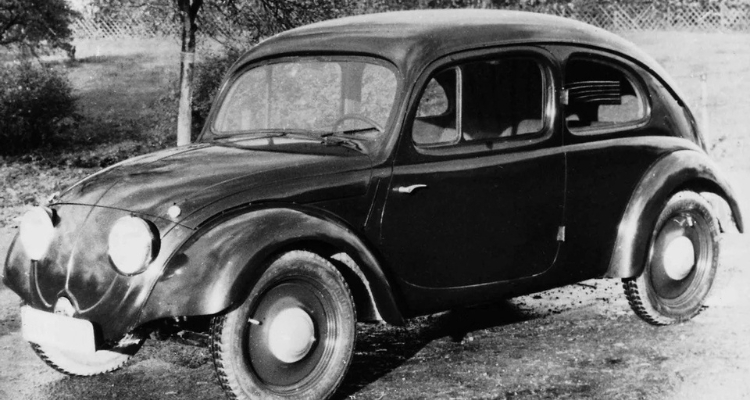
Photo Credit: The Globe and Mail
The 1930’s: The People’s Car
As the 1930s began, cars were viewed as a luxury item. In Germany, where Volkswagen was founded, most people couldn’t afford anything more than a tiny motorcycle with an estimated 1 out of 50 Germans owning a car.
The inability for the common person to own their own car led to ideas of “The People’s Car” floating around. As the idea for a car for everyone began increasing in the public sphere, models such as the “Volksauto” began to be created by names you might find familiar such as Ferdinand Porsche, the namesake for the Porsche brand of cars.
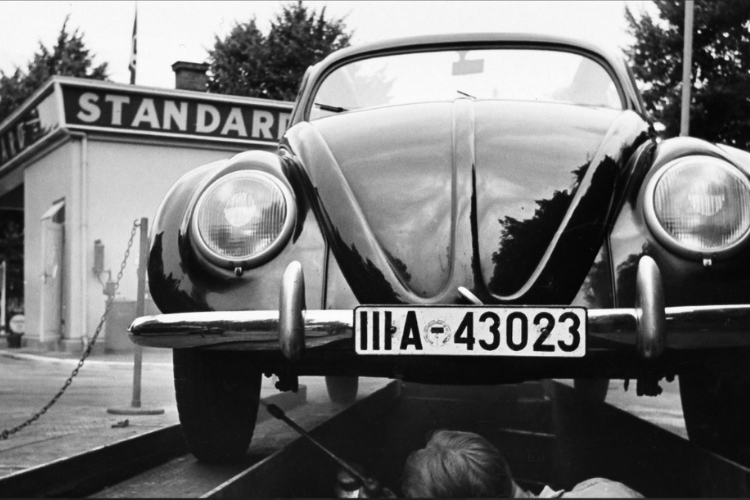
Photo Credit: Porsche Newsroom
Appreciating the Genius of the Volksauto
The Volksauto prototype was the first-ever iteration of what’s commonly known as the Beetle. The goal of its development was to create a car that everyone’s family could afford and travel in, which was certainly achieved.
The prototype was put through rigorous testing, such as being the first vehicle ever tested to reach one million miles driven. With the goal of being an affordable family car for everyone in sight, a factory had to be built to push the vehicles out. In May 1938, the construction of Volkswagen’s first factory commenced in what’s now known as Wolfsburg, Germany.
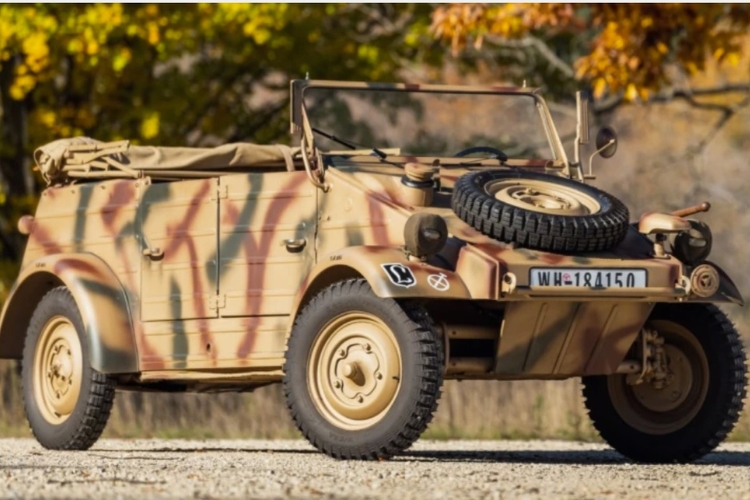
Photo Credit: 1943 Volkswagen Type 82 Kubelwagen NBC News
The 1940’s: World War II
As the 1940s began, production was slowed heavily by the onset of World War II. As the war raged on, Volkswagen shifted its factory production toward military vehicles such as the VW Type 82, commonly known as the “Bucket Car”.
The Bucket Car was Volkswagen’s most produced car during the war, with over 55,000 of them shipped and put to use during the war for Nazi Germany.
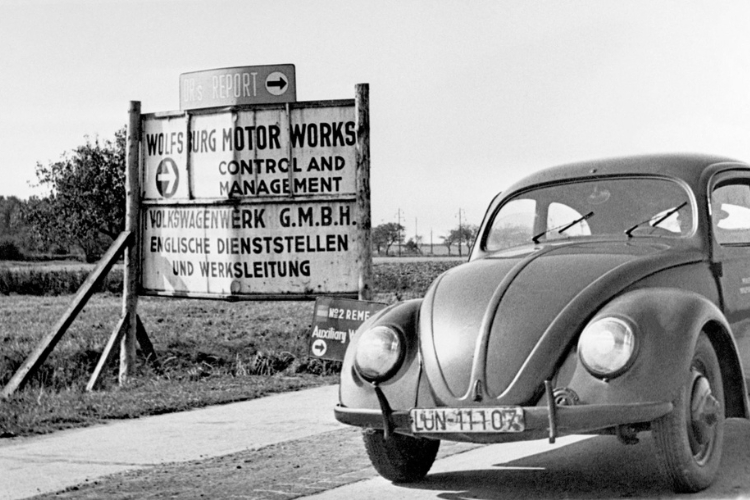
Photo Credit: Volkswagen Newsroom
The British Take Over Production
As the war raged on throughout the early 1940s, production continued on the Bucket Car but came to a halt as the British took over parts of Nazi Germany in April 1945. As the production factory was taken over by the British, the production of Bucket Cars shifted toward Allied forces.
After the war was over, car production was mostly halted as the factory and surrounding cities in Germany had been decimated by the war.
With many unsure of what to do with the previous plans for the Beetle, discussions began taking place to determine if the project was even viable any longer.
Outside investors such as Ford Motor Company decided to pass on Volkswagen, leaving the company to fend for itself in a rebuilding world.
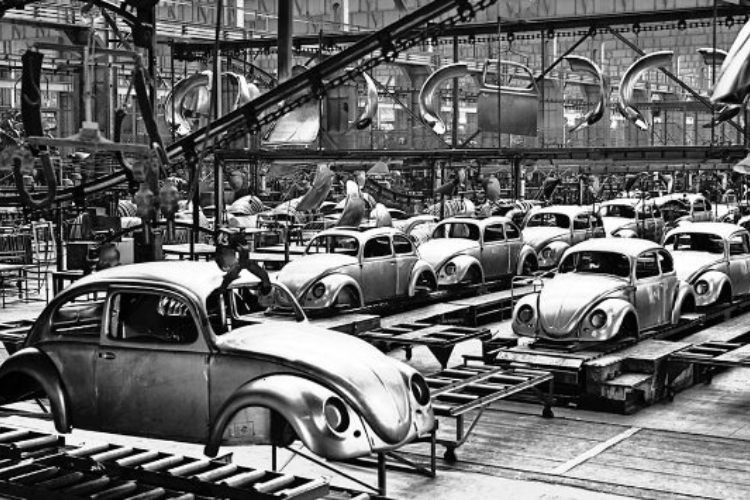
Photo Credit: Volkswagen Media
The 1950’s: The Automotive Icon of Post-War West Germany
Heinrich Nordhoff of the famed automotive company Opel was chosen to lead Volkswagen out of the World War II era.
The Beetle, officially the Volkswagen Type I, began to ramp up production in late 1949 and by the end of 1950, there were 100,000 cars produced out of the now-rebuilt Wolfsburg factory. By 1955, one million Beetles had been sold worldwide.
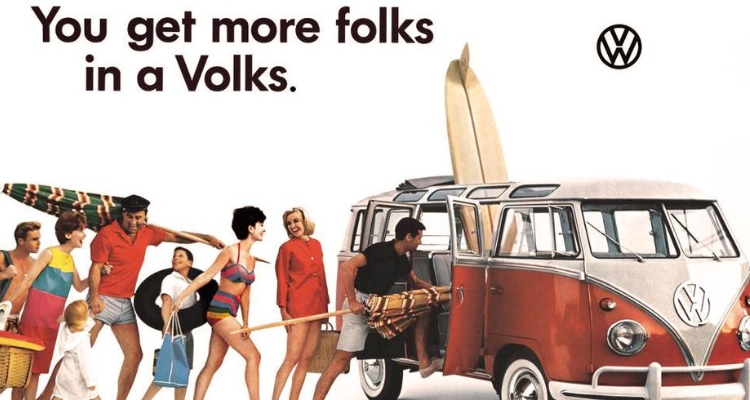
Photo Credit: Model Space: DeAgostini Blog
The Need for a Bigger Bug
As the need for vans became apparent in the late 1940s and early ‘50s, Volkswagen set out to create a van that could be used for both commercial and personal use. Out of this development came the world-famous Volkswagen Type II, or depending on where you’re from in the world, you may refer to it as the Transport van, the Kombi, or simply “the Bus”.
Photo Credit: Marconi Photography
The Love of a Bus
The Bus quickly became popular worldwide, with the one-millionth van produced in under five years in 1955. The Volkswagen motto at the time was well-known worldwide and is characterized by the bus saying, “It is a member of my family”.
By the end of the decade, Volkswagen had plants in Germany, Canada, and Brazil to send their vehicles worldwide, making it a common item in seemingly every house in just a short period of time.
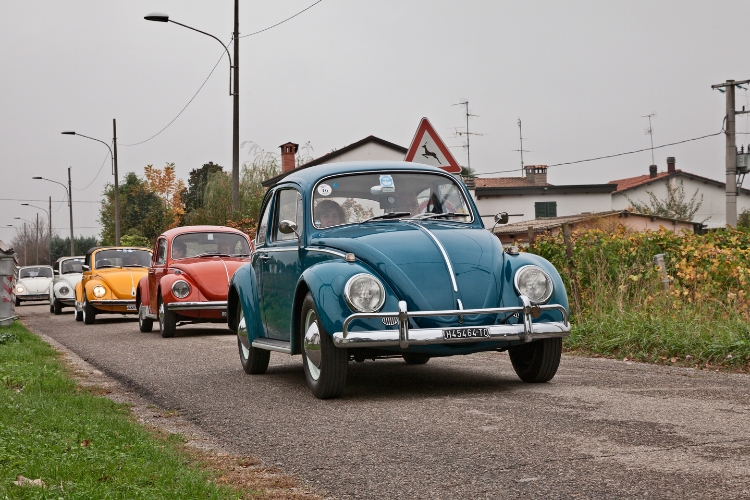
The 1960’s: Beetle to Better
As the 1960s wore on, the hype for the Beetle began to slow down. Volkswagen executives realized this and began to develop alternatives. The sports car Volkswagen Karmann Ghia, while never sold in the United States, quickly became a cult classic amongst car enthusiasts as one of the most stylish cars of its generation.
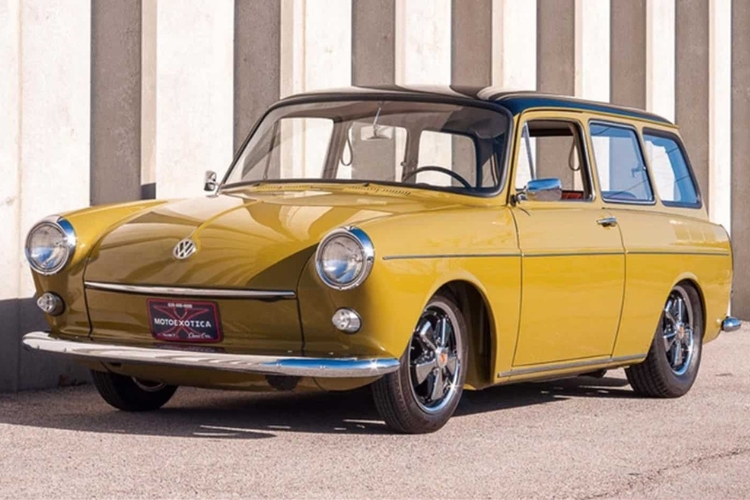
Photo Credit: Classic Car Journal
The Volkswagen Squareback
The Volkswagen Type 3, or Squareback, was a compact car that was developed to be a bigger and better family car over the Beetle. Providing more space for passengers and luggage, the Squareback. While not beloved in the United States at the time, it’s become a favorite amongst many car enthusiasts who note that it ushered forth a new era of family travel worldwide.
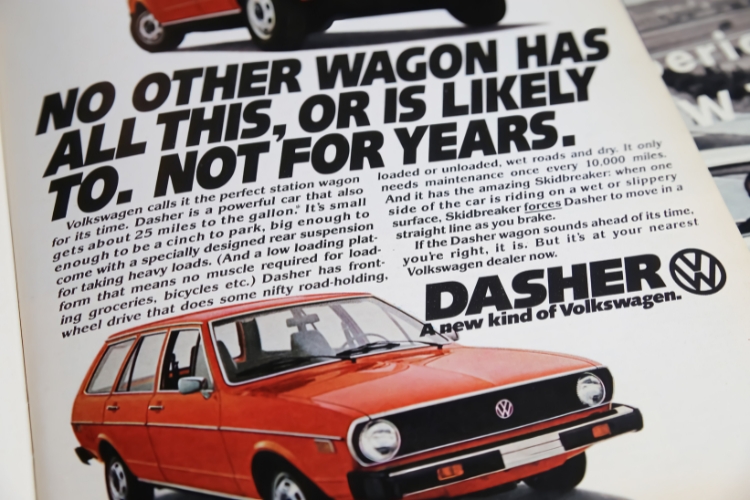
The 1970’s: Decline and Pivot
Although the Beetle was still popular in the 1960s, by the mid-1970’s its popularity dwindled from slim to none. Sales of its Bus and Squareback proved to not be as popular as they’d hoped.
With the declining popularity of its vehicles, Volkswagen set out to create a new generation of vehicles. This new generation was led by cars still known to every driver today, such as the Passat and Golf.
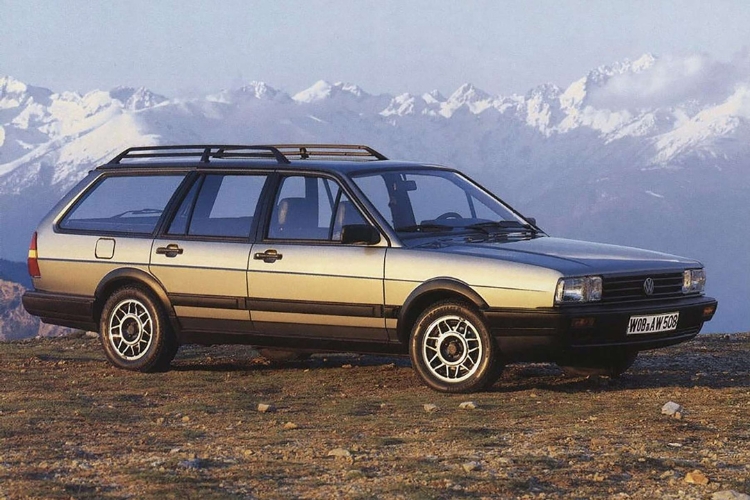
Photo Credit: Goodwood
The Passat Attack: Souped-up Wagon
The first generation 1974 Passat was a new-age station wagon which at the time was the most innovative car on the market. Meant to replace aging Volkswagen models such as the Squareback.
It was lauded for its innovativeness and efficiency compared to any other vehicle in its class at the time and holds a special place in any Volkswagen fan’s heart.
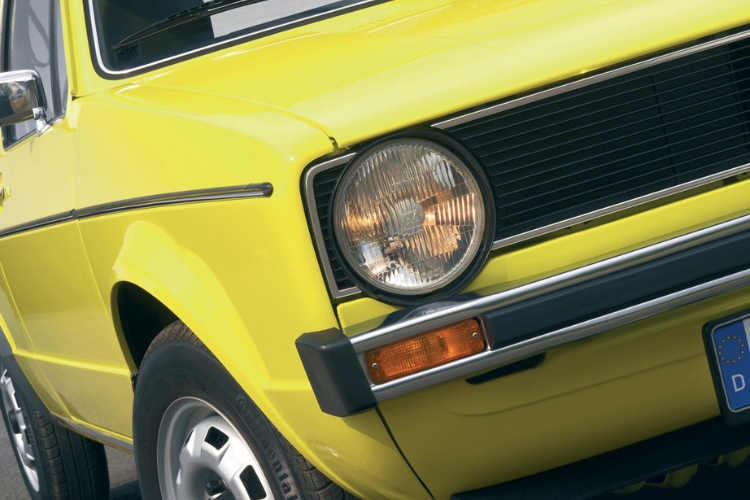
Photo Credit: AutoEvolution 1974 Golf
Introducing the Front Wheel Drive Golf
The first generation 1974 Golf was a brand-new compact family car meant to replace the Beetle. In opposition to its predecessor the Beetle, the Golf was Volkswagen’s first foray into front-wheel drive.
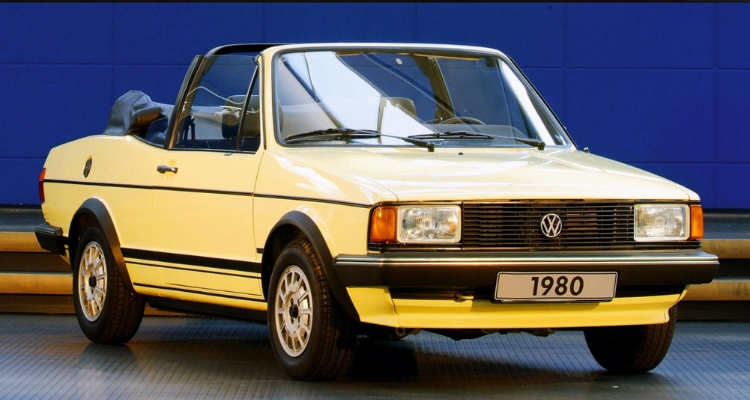
Photo Credit: Cars that never made it
The 1980’s – The Early 2000s: Continued Success and Expansion
Volkswagen struck gold with its 1970s product line expansion. A car in every class provided the opportunity for any family or individual to own a Volkswagen, making it a beloved household brand for generations.
The 1980s, 90s, and early 2000s saw the continued development of the Volkswagen Golf, Passat, and Jetta.
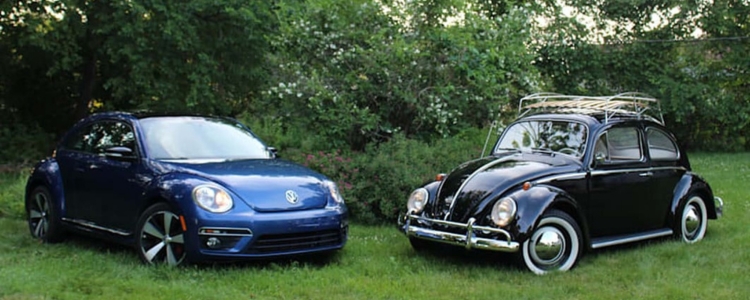
Photo Credit: Autoblog
An Old Friend Makes a Comeback
As the 1990s went on, Volkswagen realized that there was a certain nostalgia factory attached to one of their most famous models ever. The Beetle.
With the public’s nostalgia levels in mind, the Next-Generation Beetle concept was unveiled to the public at the North American International Auto Show in Detroit, Michigan in 1994 to much praise.
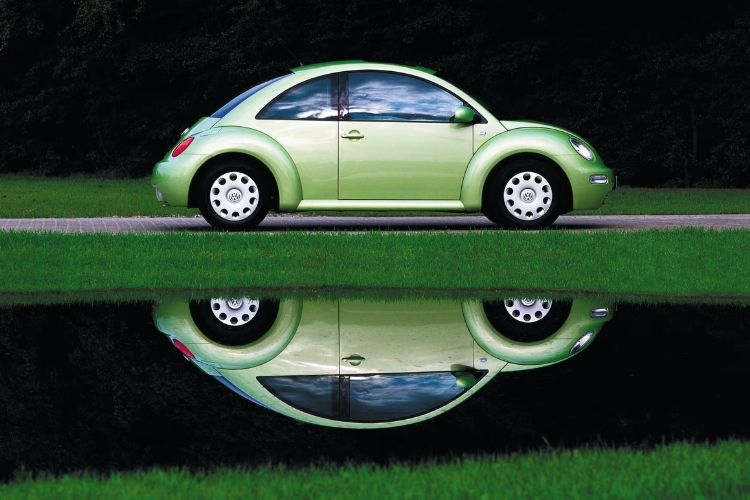
Photo Credit: Haggerty Media
Beetle: The Next Generation
In 1997, production of the Next-Generation Beetle began. Its resemblance to the original Beetle showed the lasting impact the Beetle had on customers worldwide for generations. The Next-Generation Beetle has been noted as one of the most reliable modern vehicles and it’s been popularized in numerous movies and television shows such as the acclaimed hit, The Office.
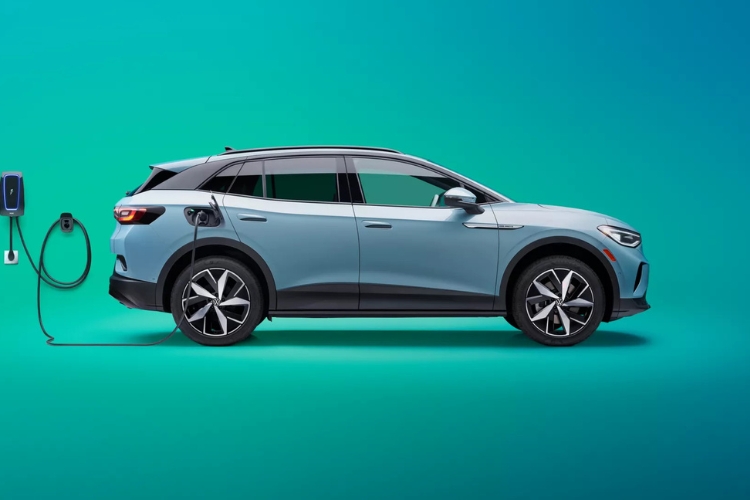
The Present: Electric Love
In 2017, Volkswagen announced plans to develop over 30 electric vehicles by 2025. The ID. family launched in 2020 and has been a hit with customers everywhere.
Volkswagen is currently developing electric vehicles of all types. The nostalgia of the past is still seen in full force, however, with electric versions of the popular Volkswagen Bus set to be developed and produced in the United States in the coming future.
Concluding Thoughts of a Colorful History
Volkswagen is one of the most recognizable automotive brands of all time. From its popular Beetle, the Volkswagen Bus, to sedans such as the Jetta GLI, and Arteon, to SUVs such as Atlas, Tiguan, and Taos and now electric vehicles such as the ID.4 and electric Bus, Volkswagen has been a common household brand for generations.
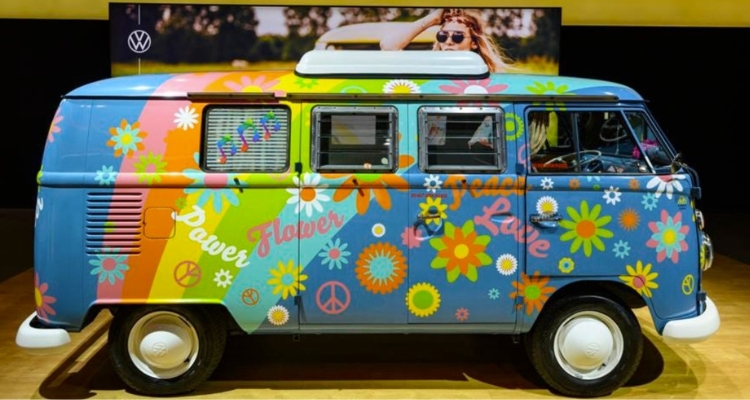
Photo Credit: Forbes
To have generations of cars grow up alongside generations of families has produced a relationship like no other between customer and brand.
From its beginnings in Germany to its struggles in World War II, to its rebirth after the war, Volkswagen has been a consistent and reliable brand for generations, and they show no signs of stopping.

About Military AutoSource
Military AutoSource provides a factory-direct car buying program tailored to the unique circumstances and needs of military and diplomatic life. As the only DOD and Exchange authorized car buying program, MAS is the exclusive military distributor and retailer for Audi, Chrysler, Dodge, Ford, Harley-Davidson, Jeep, Lincoln, Nissan, Ram, Volkswagen, and more.
Through our program U.S. Military stationed, deployed, or on TDY as well as DOD contractors, civilians and the diplomatic community serving overseas can purchase a car for delivery in the US or to more than 50 overseas duty locations. Learn more about your overseas U.S. military car buying benefits.

